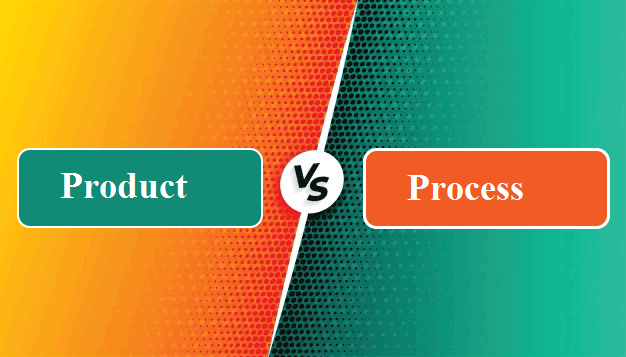Key Differences between Product and Process

The terms "product" and "process" refer to different aspects of business operations and management. Here are the key differences between them:
-
Definition:
- Product: A product refers to a tangible or intangible item that is offered to the market for consumption, use, or exchange. It is the result of a production or manufacturing process and satisfies a need or want of customers.
- Process: A process refers to a series of interrelated activities or steps that are carried out in a systematic manner to achieve a specific goal or outcome. Processes provide structure and organization to tasks, operations, and workflows.
-
Nature:
- Product: A product is the end result or output of a process. It is what is created, manufactured, or delivered by following a series of steps or activities.
- Process: A process is the sequence of steps or activities that are undertaken to create, manufacture, or deliver a product. It represents the method or approach used to achieve a desired outcome.
-
Focus:
- Product: The focus of product-oriented activities is on the characteristics, features, and attributes of the end result. This includes aspects such as design, quality, functionality, and value proposition.
- Process: The focus of process-oriented activities is on the activities, tasks, and workflows involved in creating or delivering the product. This includes aspects such as efficiency, effectiveness, and optimization of the process itself.
-
Duration:
- Product: Products have a finite lifespan and are created, sold, and consumed within a specific timeframe. They may undergo changes, updates, or modifications over time.
- Process: Processes can be ongoing and continuous, with activities being repeated or iterated to achieve consistent results. Processes may evolve or adapt over time based on feedback, improvements, or changes in requirements.
-
Measurement:
- Product: Products are typically measured and evaluated based on attributes such as quality, performance, reliability, and customer satisfaction. Key performance indicators (KPIs) may include metrics related to sales, revenue, market share, and customer feedback.
- Process: Processes are measured and evaluated based on criteria such as efficiency, effectiveness, productivity, and adherence to standards or benchmarks. KPIs may include metrics related to cycle time, throughput, error rates, and process variability.
-
Management:
- Product: Product management involves activities related to the development, marketing, and maintenance of products throughout their lifecycle. This includes activities such as market research, product planning, pricing, and promotion.
- Process: Process management involves activities related to the design, optimization, and improvement of processes to achieve desired outcomes efficiently and effectively. This includes activities such as process mapping, analysis, optimization, and control.
In summary, while products represent the end result of a process, processes are the series of activities or steps undertaken to create or deliver the product. Both products and processes are essential elements of business operations, and effective management of both is critical for achieving organizational objectives and satisfying customer needs.
Thank you,
